Zika, West Nile and Malaria..Oh My!
With CDC warnings for pregnant women about the Zika virus, will vacations be put on hold indefinitely?
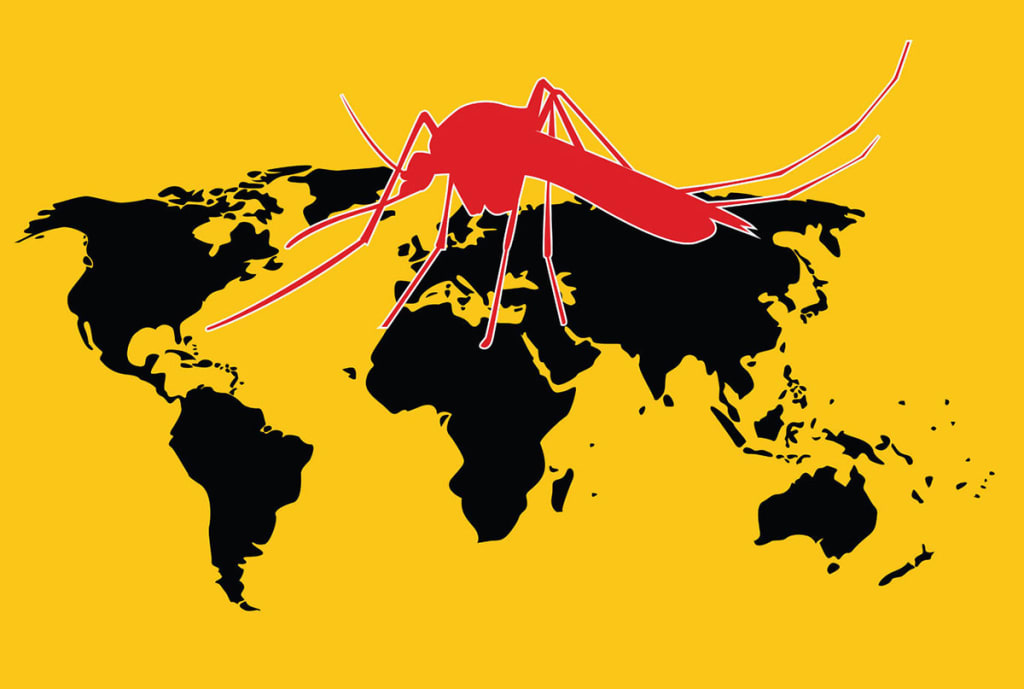
Traveling is stressful under the best of circumstances, but once a warning from the CDC comes into the mix, it becomes a whole different type of stress. Once upon a time, there were murmurings of the Zika virus. Nothing too specific, just tales of babies born with small heads. Didn't seem to be anything that would effect us in the great USA, but then, somehow, the virus started appearing in Brazil, then Puerto Rico and was getting closer and closer to the greater population. Most recently, a public health alert was issued. "The CDC has issued an alert for travel to areas where Zika virus is spreading, which now includes Miami-Dade County, Florida. Travelers who are pregnant or considering pregnancy should consult a doctor."
It seems that the greatest risk for those that may contract the virus, are those who are with child. One of the risks associated with the Zika virus in unborn children is microcephaly. The definition of this birth defect is, "The abnormal smallness of the head, a congenital condition associated with incomplete brain development." Does this happen to every pregnant woman who comes in contact with an infected mosquito? Nope. If you were pregnant would you want to take that risk just to sit out on the beach? Totally up to you, but you have been warned.
Just like warnings about West Nile Virus and Malaria, Zika is the latest in the health challenges that we have become exposed to.
History of Zika
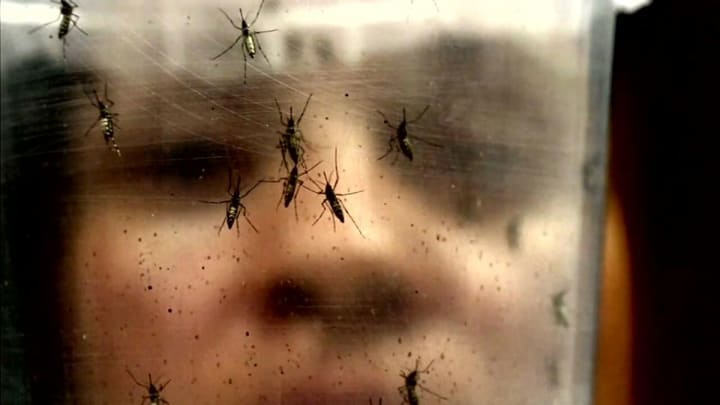
The Zika virus was first identified in monkeys in Uganda in 1947. It was during a routine surveillance for Yellow Fever. The first reported cases in humans was in 1952. The mosquito was the culprit since it transmits blood from one "victim" to the other. In 1964, researcher David Simpson was working with strains of the virus and he got a little too close and became sick himself. In his documenting is own reaction to the virus he wrote, "The clinical picture of the infection was that of a mild febrile illness of short duration accompanied by a generalized maculopapular rash and a rise in the antibody to Zika virus was demonstrated." In lay man's terms-the poor guy had a fever and a rash.
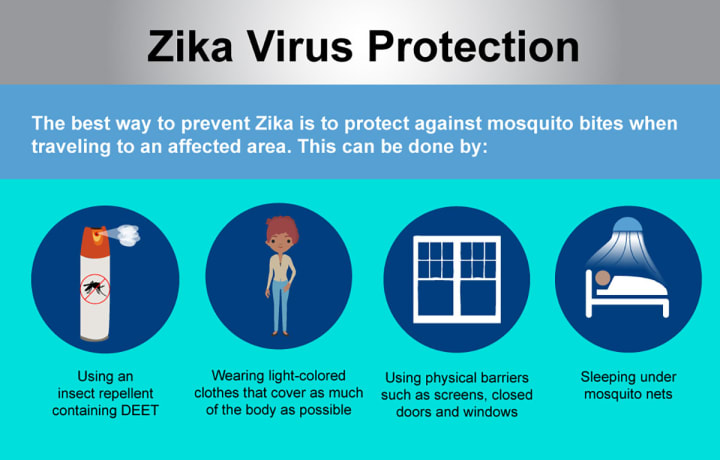
Zika was a much milder virus when compared to the other mosquito borne viruses, perhaps that is why it really hasn't been in the limelight. However in 2007, the first large outbreak occurred on the Island of Yap, which is in the Caroline Islands and part of the Federated States of Micronesia. And in 2013, it became worse. Having spread to other Pacific Islands, researchers began to take notice of the seriousness of the virus and the link between Zika and temporary paralysis (Guillain-Barre Syndrome) and microcephaly. By the end of December 2015, over 3000 cases of microcephaly were reported in Brazil and in January of 2016 the first confirmed case of the Zika virus was reported in Puerto Rico.
Pregnant women who are living in Miami, Florida are under house arrest. They leave the house totally covered from head to toe, go to their doctor appointments and then go straight home. Vacation plans have been canceled fast and furious because everyone is afraid. Ironically, for those who aren't pregnant, the chances of getting Zika are very small. If you do get bitten by a Zika carrying mosquito, your symptoms can range from absolutely none, to flu-like symptoms. There is no specific treatment, no vaccine; just rest, rehydration and avoid aspirin and NSAID's.
The World Health Organization has issued many warnings about the virus and it has even come out the disease can be sexually transmitted.
West Nile Virus
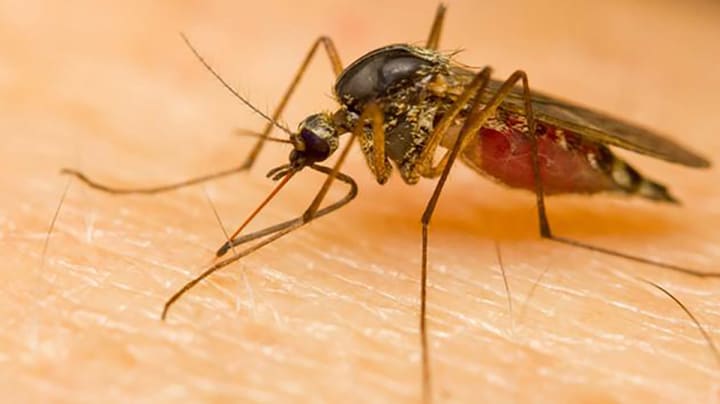
West Nile Virus can be found in Africa, Europe and North America. Fortunately, according to the CDC, most people who contract it, will have no symptoms. In fact, only 1 in 5 people will develop a fever and fewer than one percent of those infected will develop truly severe neurological symptoms. Travelers 50 years and older are at the highest risk for severe cases.
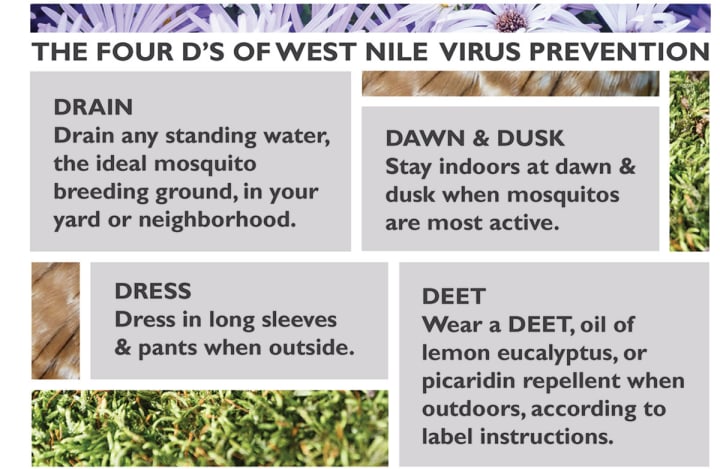
The virus can only be transmitted through mosquitoes, no human to human transmissions, thankfully. So wearing bug spray can be essential in helping to prevent contracting the virus.
The panic surrounding West Nile Virus was never as great as Zika because the ramifications are much less. Pregnant women needn't be as worried because they are also much less likely to contract the virus and even if they do, it statistically is less harmful and possibly with no consequence at all to the fetus and themselves.
Malaria
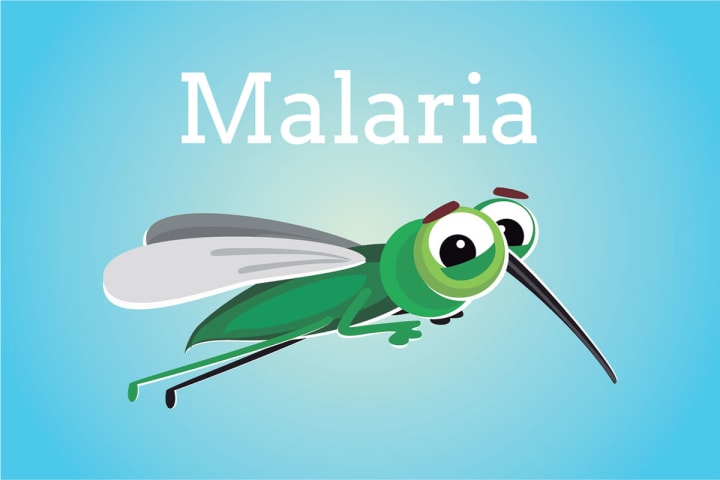
Malaria is the original mosquito borne disease. Malaria can be traced back to 2700 BC in ancient Chinese medical writing. In 1880, a French army surgeon named Charles Louis Alphonse Lavern was the first to notice parasites in the blood of Malaria patients. For this he was awarded a nobel prize in 1907.
According to the CDC, malaria is still one of the most severe public health problems and is the leading cause of death and disease in developing countries. In fact, half of the world's population lives in areas that are at risk for malaria transmission. In this day and age filled with modern technology and medical breakthroughs almost every day, it is quite disturbing to read a statistic like that. Malaria is both preventable and curable but because of the poverty in the areas where it is most prevalent, it cannot be contained.
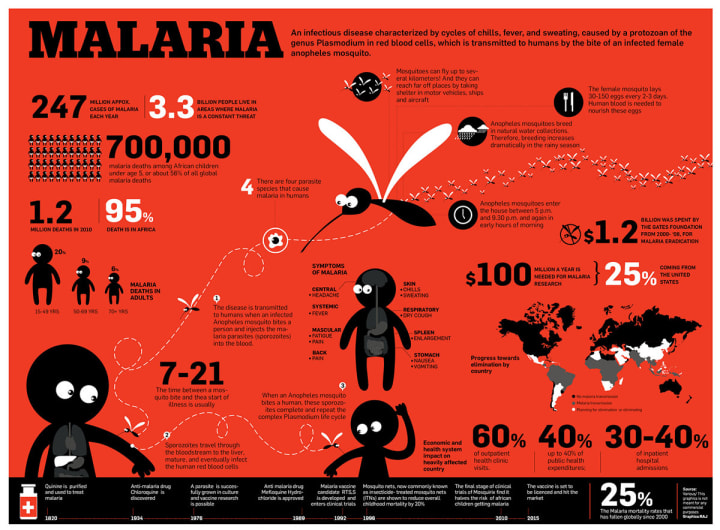
It is spread through mosquitoes-not person to person or via sexual transmission. For those traveling to countries with malaria warnings, there are measures than can be taken to prevent contracting the disease. Malaria pills, insect repellants, and netting for where you sleep are all advised while traveling to these areas. It is usually not advised to travel to these regions unless absolutely necessary.
There are many organizations dedicated to eradicating malaria and helping those effected; One even claims to have the power to have the disease disappear by the year 2040.
About the Creator
Banji Ganchrow
Self-proclaimed writer, masters in social work. Has driven 3 sons to 22 baseball stadiums. Hopes, because of this, they will never put her in a nursing home.
Enjoyed the story? Support the Creator.
Subscribe for free to receive all their stories in your feed. You could also pledge your support or give them a one-off tip, letting them know you appreciate their work.






Comments
There are no comments for this story
Be the first to respond and start the conversation.